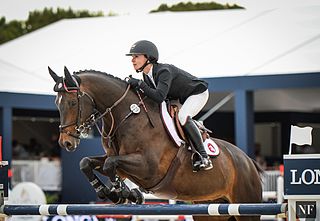A Quote by Jamaica Kincaid
Everyone who knew me as a child, they say they're not surprised that I became a writer because I wrote all the time. I don't remember writing, because I wouldn't have had the tools, but I think what they are saying is that I would pretend I was a writer.
Related Quotes
Everyone always asks, was he mad at you for writing the book? and I have to say, Yes, yes, he was. He still is. It is one of the most fascinating things to me about the whole episode: he cheated on me, and then got to behave as if he was the one who had been wronged because I wrote about it! I mean, it's not as if I wasn't a writer. It's not as if I hadn't often written about myself. I'd even written about him. What did he think was going to happen? That I would take a vow of silence for the first time in my life? "
It was only after two years' work that it occurred to me that I was a writer. I had no particular expectation that the novel would ever be published, because it was sort of a mess. It was only when I found myself writing things I didn't realise I knew that I said, 'I'm a writer now.' The novel had become an incentive to deeper thinking. That's really what writing is—an intense form of thought.
I say "on principle" [regarding 'lesbian writer'] because whenever you get one of your minority labels applied, like "Irish Writer," "Canadian Writer," "Woman Writer," "Lesbian Writer" - any of those categories - you always slightly wince because you're afraid that people will think that means you're only going to write about Canada or Ireland, you know.
And if you're gonna be a writer, you just truly have to be a writer. You have to throw yourself into it and deal with the negative consequences of that. And there are negative consequences. I mean, there are. But, it's also true that you wouldn't be interviewing me right now if I had worked at the post office. You wouldn't. I would be still writing, but I wouldn't have gotten as far as I've gotten, because I wouldn't have had the time.
I think I succeeded as a writer because I did not come out of an English department. I used to write in the chemistry department. And I wrote some good stuff. If I had been in the English department, the prof would have looked at my short stories, congratulated me on my talent, and then showed me how Joyce or Hemingway handled the same elements of the short story. The prof would have placed me in competition with the greatest writers of all time, and that would have ended my writing career.
I'm not a sketch writer. I know what I am: I have a sensitive comedic sensibility. What turns me on is subtle neurosis. That's my game. I'm not an action writer or a thriller writer and I'm not a sketch writer. I don't pretend to be those things. Then it would not be fun. Then you are in a space where this is painful.
I had to take a big risk by writing my young adult book series 'The A Circuit' and putting myself out there in that way. I don't consider myself a good writer, so I had to rely on a co-writer. Still, I knew that people would judge me and my writing. I am really proud of the way the series turned out.
I'm a better musician now, and I rarely practice because age has taught me the value of economy. And I think I'm a better writer now because I don't waste as much time, dilly-dallying and sassafrassin' and sloop and sloppin' and frying eggs. When you start writing, half the time you're just saying howdy to the page. My process now is a little more lean and muscular. I don't waste a lot of time. When I had kids, I learned how much time I had before, and how much time you actually need to do something. If you don't have time, you'll just do it and get it done.
It's not possible to advise a young writer because every young writer is so different. You might say, "Read," but a writer can read too much and be paralyzed. Or, "Don't read, don't think, just write," and the result could be a mountain of drivel. If you're going to be a writer you'll probably take a lot of wrong turns and then one day just end up writing something you have to write, then getting it better and better just because you want it to be better, and even when you get old and think, "There must be something else people do," you won't be able to quit.






































